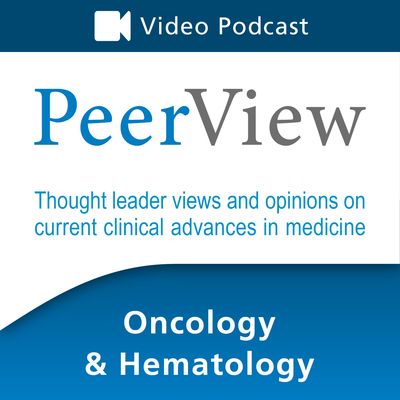PeerView (PVI) is a leading provider of high-quality, innovative continuing education (CME/CE/CPE and MOC) for clinicians and their interprofessional teams. Combining evidence-based medicine and instructional expertise, PeerView activities improve the knowledge, skills, and strategies that support clinical performance and patient outcomes. PeerView makes its educational programming and expert-led presentations and symposia available through its network of popular podcast channels to support specific specialties and conditions. Each episode includes a link to request CME/CE credit for participation. PeerView is solely responsible for the selection of topics, the preparation of editorial content, and the distribution of all materials it publishes.
http://ww2.peerview.com
Gail J. Roboz, MD - The Advantage of Innovation in AML: Guidance on Developing and Delivering Effective and Highly Personalized Care
Go online to PeerView.com/NVX860 to view the activity, download slides and practice aids, and complete the post-test to earn credit. The rapid validation of novel cytotoxic, targeted, and epigenetic treatment approaches in acute myeloid leukemia (AML) has quickly augmented—and in some cases, eclipsed—long-standing options centered around standard cytarabine-based regimens. These developments have afforded clinicians the opportunity to develop truly personalized treatment protocols designed to overcome therapeutic challenges in different AML populations. This activity will prepare learners for the increasingly personalized management of AML through a series of case-based, expert-led conversations on modern AML care. The panelists discuss topics such as the changing nature of upfront therapy, the challenges of selecting postremission maintenance, and new developments in selecting evidence-based therapy for R/R AML. Learn how to skillfully deploy novel therapeutics in AML—watch today! Upon completion of this activity, participants should be better able to: Cite current evidence for novel cytotoxic, targeted, epigenetic, and immune-based strategies (including combination therapies) with applications in AML care, including in the newly diagnosed, postremission maintenance, or relapsed/refractory settings; Integrate novel cytotoxic, antibody, epigenetic, or targeted strategies into personalized treatment plans for AML patients based on factors such as age and fitness; the presence of TP53, FLT3, and IDH mutations; MLL rearrangements; and treatment history prior to relapse; and Implement management protocols to address the unique suite of adverse events associated with the use of novel therapeutics for AML.
